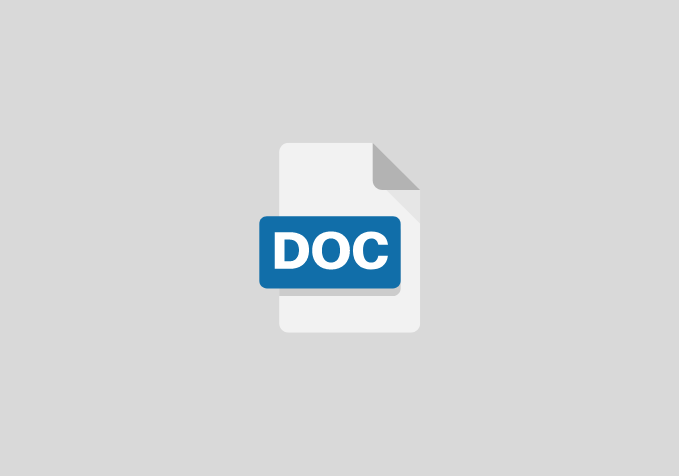Management Factors Influencing Academic Performance of Students in Private Secondary Schools in Port Harcourt Local Government Area in Rivers State Nigeria
CHAPTER ONE
OBJECTIVES OF THE STUDY
The following are the objectives of this study:
- To examine the role of management in the operation of private secondary schools.
- To identify the influence of management factor on the academic performance of private secondary school students in Port Harcourt local government
- To determine the other factors that influences the academic performance of private secondary school student
CHAPTER TWO
LITERATURE REVIEW
INTRODUCTION
This chapter gives an insight into various studies conducted by outstanding researchers, as well as explained terminologies with regards to management factors influencing academic performance of students in Private Secondary schools. The chapter also gives a resume of the history and present status of the problem delineated by a concise review of previous studies into closely related problems.
THEORETICAL FRAMEWORK
The study was based on Capital Theory of School Effectiveness and Improvement. Hargreaves (2001) developed a theory of school effectiveness and improvement based on: outcomes, both cognitive and moral; leverage: the relationship between teacher input and education output; intellectual capital: the sum of the school’s knowledge and experience; and social capital: the networks of trust and collaboration. In this theory, Hargreaves (2001) argues that the conventional model of measuring school effectiveness and improvement is an adequate tool for the analysis of school success and failure. The concept of school ‘ethos’ helped to make sense of the correlation between a number of school processes but it did not allow one to test the model in detail, or to predict the performance of a school from any close analysis of identifiable factors. He proposes a new theoretical model of schools, which provides a working model, both of effectiveness and improvement. The theory has the following concepts:
- Outcomes: cognitive and moral.
- Leverage: the relationship between teacher input and educational output, or changes in students’ intellectual and moral state resulting from the teacher’s effort. Hargreaves argues that instead of teachers employing too much effort and yielding little fruit, effective schools concentrate on effective strategies allowing a large impact to result from relatively low effort (working smarter, not harder). Outstanding schools use combinations of high leverage strategies.
CHAPTER THREE
RESEARCH METHODOLOGY
INTRODUCTION
This chapter covers the description and discussion on the various techniques and procedures used in the study to collect and analyze the data as it is deemed appropriate.
It is organized under the following sub-headings:
Research Design
Area of the Study
Population of the study
Sample and sampling procedure
Instrument of Data Collection
Validation of the Instrument
Reliability of the Instrument
Method of Data Collection
Method of Data Analysis
RESEARCH DESIGN
According to Asika (2009), research designs are often referred to as the structuring of investigation aimed at identifying variables and their relationships to one another. In this study, questionnaire serves as useful guide to the effort of generating data for this study. The survey research design through the administration of questionnaires was used for the study.
CHAPTER FOUR
DATA PRESENTATION, ANALYSIS AND INTERPRETATION
INTRODUCTION
This chapter deals with the presentation and analysis of the result obtained through questionnaires. The data gathered were presented according to the order in which they were arranged in the research questions, simple percentage and pie graphs were used to analyze the demographic information of the respondents while Pearson correlation was adopted to test the research hypotheses.
CHAPTER FIVE
FINDINGS, CONCLUSION AND RECOMMENDATION
Findings
The objectives of the study were to examine the following:
- To examine the role of management in the operation of private secondary schools.
- To identify the influence of management factor on the academic performance of private secondary school students in Port Harcourt local government
- To determine the other factors that influences the academic performance of private secondary school student
- Findings from the study revealed the following
- Effective management in schools produces qualified teachers.
- Lack of efficient management encourages poor quality of education received by students.
- Management factor influences private secondary school students’ academic performance.
- Most private schools are effectively managed.
REFERENCES
- Achoka, J. (2007). In search of remedy to secondary school dropout pandemic in Kenya role of the principal.Unpublished.
- Ananga, E. (2010). Understanding the push and pull factors in school dropout: A case study of Southern Ghana CREATE Monograph Series (forthcoming). Brighton: University of Sussex, UK.
- Andaje, D. (2012). A pilot project of donating sanitary pads to schools in Narok. Education News p. 11,
- Anderson, S. E. (2000). A coordinated district consultant/teacher centre approach to school-based teacher development: The Mombasa school improvement project. Paper presented at the Annual Meeting of the Comparative and International Education Society, San Antonio. Texas, March, 2000.
- Borg, W. R. & Gall, M. D. (1999). Education research: An introduction. (4th ed). New York: Longman.
- Carron, G. &Chau, T. N. (1996).The quality of primary schools in different development contexts. Paris: UNESCO.
- Condy, A. 1998.Improving the quality of teaching and learning through community participation: achievements, limitations and risks.Early lessons from the School Improvement Fund in Ghana.
- Craig. H. Kraft R., &duPlessis, J. (1998). Teacher development: making an impact. Wasington, D.C.: Academy for Educational Development, ABEL Clearinghouse for Basic Education.


